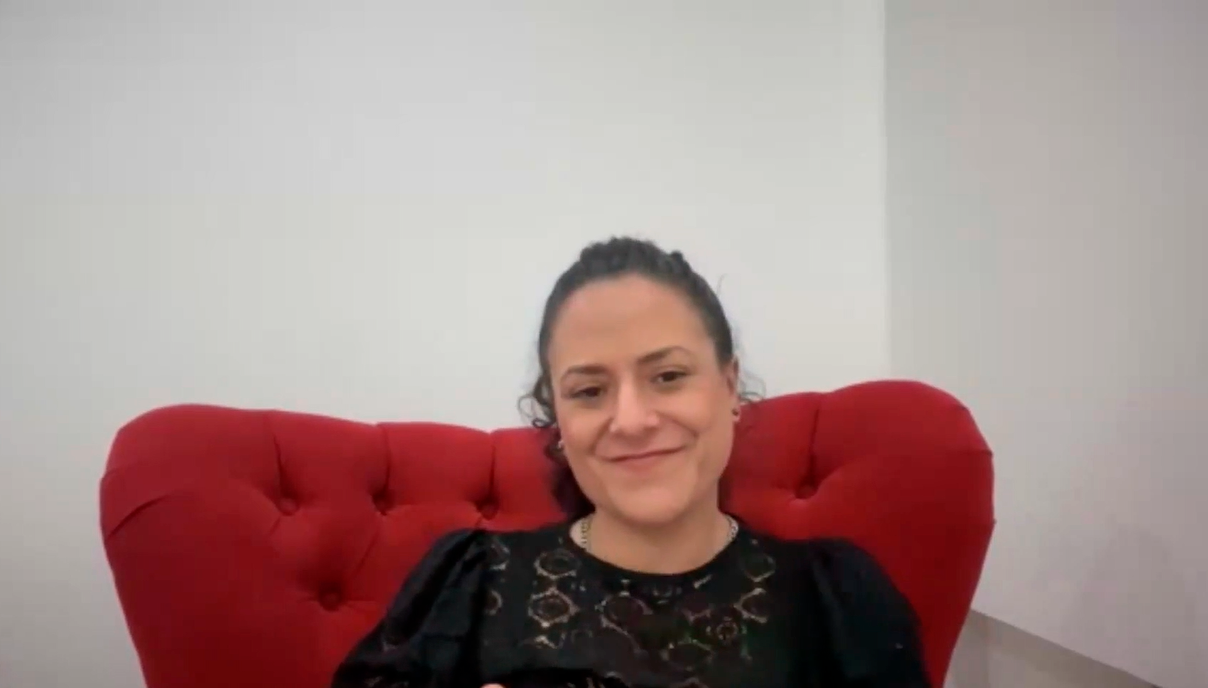Igor Domsac | July 10, 2025
On July 8, an online seminar entitled “Perspectives on integration from ICEERS’ El Faro” was held, organized by our foundation. More than a hundred people from different countries registered to hear the voices of El Faro’s integration team, made up of David Londoño, Gerónimo Tejedor, and Mijal Schmidt, and moderated by Cristina Sánchez, head of the service.
The event opened with a contextualization of El Faro, a support service that since 2013 has offered unbiased listening and accompaniment to people going through difficult experiences related to psychoactive plants. Cristina explained that today the integration team serves about 200 people a year, with inquiries coming from all over the world. “The goal is to offer a safe, stigma-free space where people can make sense of what they have experienced,” she said.
Multiple lenses for looking at integration
David Londoño opened the round of presentations with a talk on the different frameworks from which integration is practiced. He pointed out that there are more cognitive models, others that are more psychoanalytical, and also approaches such as Internal Family Systems. However, he reminded the audience that these frameworks have limitations and blind spots, especially when they ignore or devalue indigenous worldviews. “We are at a time when there is a lot of talk about honoring sources, but often it remains just nice words,” he warned.
He also questions the widespread use of the term “psychedelic,” as it tends to reduce plants to manifestations of the mind, ignoring their spiritual, relational, and territorial dimensions. David insists on the importance of considering the cultural framework of origin of each plant and avoiding imposing external views that impoverish or distort the experience.
David gave an eloquent example: a therapist who, upon hearing that a participant had felt communication with a plant during a ceremony, described it as “primitive thinking.” In response, he quoted the Union of Indigenous Yagé Doctors of Colombia (UMIYAC): “Yagé is not a hallucinogen or a psychedelic plant, but a plant with a living spirit that teaches us to live in harmony with Pachamama.”
Decolonizing the practice
The second presentation was given by Gerónimo Tejedor, who explored the decolonial theoretical framework from which he proposes to think about integration. He spoke about how the modern, Cartesian, and hegemonic medical paradigm has dissociated body and mind, displacing the body as a source of knowledge. In response to this, he proposed “thinking of the body as a place of history and possibility,” including affectivity, embodied memory, and reconnection with the territory.
He presented concepts such as Deleuze and Guattari’s “body without organs” and “cheje,” a logic that allows tensions to be sustained without the need to resolve them. “When a person experiences themselves as a jaguar in a ceremony, it is not necessarily a delusion, but a bodily and existential transformation,” he explained. In her words, “it is essential to reconnect the body-mind as a concept in itself, not separate, body and mind.”
Listening to the context
Mijal Schmidt closed the presentations with an intimate and lucid talk on the importance of “contextual listening.” “Colonization is also in our minds, in how we position ourselves in relation to knowledge, power, and others,” she said. Drawing on her clinical experience, she insisted that integration requires skills and training, but also humility and presence. “You have to know when to be silent to allow the other to listen to themselves,” she added.
Mijal spoke of how each person arrives with their own unique baggage, shaped by culture, history, spirituality, and trauma, and how the role of the integrator is to create space for the experience to find meaning in its own time. “Sometimes, the best intervention is to let the content marinate,” she noted. Her intervention was a call for careful, situated, and deeply human practice.
An open and necessary dialogue
The second half of El Faro’s seminar was devoted to questions from the audience. Complex issues were addressed, such as the emergence of traumatic memories during ceremonies, the need to work as a team with professionals with specialized knowledge, and how to support those who become emotionally overwhelmed. “It’s not about saying ‘let go,’ but about knowing how to intervene, support, and refer when necessary,” Mijal emphasized.
There was also reflection on the role of intention before an experience: “You have to be very careful with what you intend, because it can come true and overwhelm you,” warned Gerónimo. And the voices of users were heard, such as Paulo from Brazil, who expressed his gratitude to ICEERS and offered his collaboration in the legal and community spheres in defense of Santo Daime.
A collective path
The seminar closed with gratitude and promises of continuity. Cristina reminded everyone that an email would be sent with additional resources and answers to questions that had not been addressed. It was clear that integration, as understood by El Faro, is not a standardized technique, but rather a relational and pluralistic art, built on listening, respect, and awareness of context.
In David’s words, “you need someone else to accompany these processes, because it’s very easy to get lost and end up stumbling instead of dancing.”
Tags: psychoactive plants , webinar , psychedelic-assisted therapy , psychedelic integration

